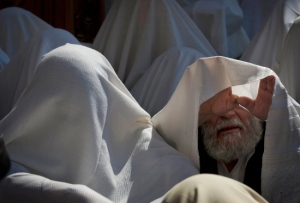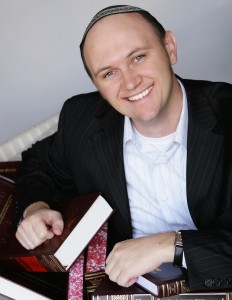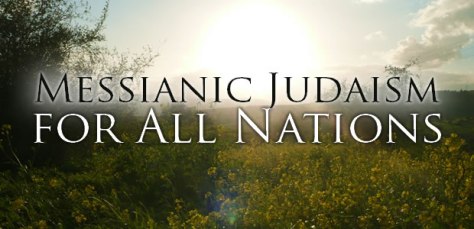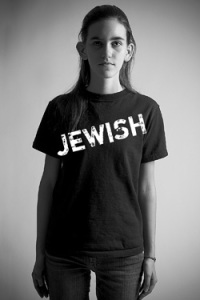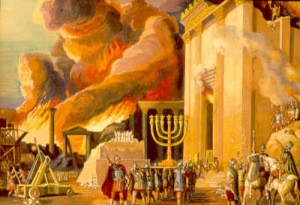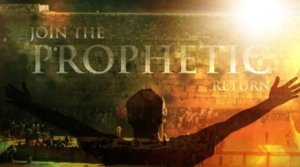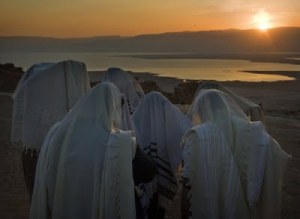One of the difficulties…that Christian theologies have not really grasped, is that Rav Yeshua’s gentile disciples don’t actually participate in any covenant whatsoever. Perhaps that is why they invent fictitious covenants. What they have instead of a covenant is an individually-based responsibility to rely on HaShem’s unchanging character and graciousness. They must trust HaShem Who wishes all humanity to be saved and come to the knowledge of the truth, as Rav Shaul wrote to Timothy in 1 Tim. 2:3-4. They, and their children, and their children’s children, each must approach HaShem as trusting individuals. They may pass to their children a heritage of knowledge about how to trust HaShem, but each must choose to embrace and employ that knowledge afresh in their own lives. They may form collective communities of faith-filled individuals, and they may covenant with each other to serve HaShem, but they do not possess a collective responsibility under a covenant with HaShem in which HaShem has bound Himself by His Oath.
-ProclaimLiberty
from one of his recent comments
I’ve written about the “connection” (or lack thereof) between Gentile believers and the New Covenant many times before, and I agree with ProclaimLiberty (PL) that we non-Jewish disciples of Rav Yeshua (Jesus Christ) are not named participants in the New Covenant (see Jer. 31, Ezek. 36), and thus we have no stake in those covenant promises.
That might come as a shock to some of you.
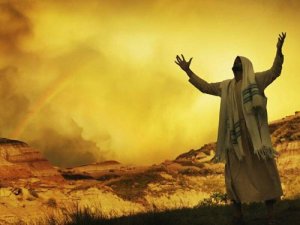 But through Hashem’s grace and mercy for the human race, He has allowed any of us who attach ourselves to Israel through our Rav to benefit from some of the blessings of that covenant.
But through Hashem’s grace and mercy for the human race, He has allowed any of us who attach ourselves to Israel through our Rav to benefit from some of the blessings of that covenant.
We know that Hashem wants all human beings, not just Israel, to come to a knowledge of Him, to become His servants, to worship Him alone as the God of Israel:
That to Me every knee will bow, every tongue will swear allegiance.
–Isaiah 45:23 (NASB)
For it is written, “As I live, says the Lord, every knee shall bow to me, and every tongue shall give praise to God.”
–Romans 14:11
This is good and acceptable in the sight of God our Savior, who desires all men to be saved and to come to the knowledge of the truth.
–1 Timothy 2:3-4
These are just a few scriptural examples illustrating God’s desire for all people, both Israel and the nations, to be devoted to Him.
But what PL wrote made me think. The Jewish people are collectively Israel, and the covenants apply to all Israel. Yes, each individual Jew has his or her own responsibilities to fulfill under covenant, but ultimately, God doesn’t covenant with each individual Jew, but with all of them, past, present, and future.
A Jew is the only person to be born into a covenant relationship with God whether he or she wants to.
Not so with the rest of us.
 Except for the Noahide covenant, which Hashem made with all living things, we are born into no relationship with God at all. If we want a relationship with Him, we have to choose that for ourselves and then act on it (not that the Spirit of God can’t send us certain “prompts”).
Except for the Noahide covenant, which Hashem made with all living things, we are born into no relationship with God at all. If we want a relationship with Him, we have to choose that for ourselves and then act on it (not that the Spirit of God can’t send us certain “prompts”).
Good thing we have free will to make that choice.
But then I thought about the “Church,” which is something of an artificial construct, so I dug back into the concept of the “ekklesia”.
Nearly two years ago, in a fit of insomnia, I started exploring the meaning of ekklesia:
noun, plural ec·cle·si·ae [ih-klee-zhee-ee, -zee-ee] Show IPA .
1. an assembly, especially the popular assembly of ancient Athens.
2. a congregation; church.
Origin: 1570–80; < Latin < Greek ekklēsía assembly, equivalent to ékklēt ( os ) summoned ( ek- ec- + klē-, variant of kal-, stem of kaleîn to call, + -tos past participle suffix) + -ia -ia
Also:
— n , pl -siae
1. (in formal Church usage) a congregation
2. the assembly of citizens of an ancient Greek state[C16: from Medieval Latin, from Late Greek ekklēsia assembly, from ekklētos called, from ekkalein to call out, from kalein to call]
 I tend to think of the ekklesia in its broadest sense, as that world-wide body of people, Jews and Gentiles, who have answered the call of Rav Yeshua to follow his teachings and draw nearer to Hashem. For Jews, this is the next “evolutionary” step or the next logical extension of their covenant relationship with Hashem, since Rav Yeshua is the mediator of the New Covenant.
I tend to think of the ekklesia in its broadest sense, as that world-wide body of people, Jews and Gentiles, who have answered the call of Rav Yeshua to follow his teachings and draw nearer to Hashem. For Jews, this is the next “evolutionary” step or the next logical extension of their covenant relationship with Hashem, since Rav Yeshua is the mediator of the New Covenant.
For non-Jews, we are allowed to draw near to Israel and be “grafted in” (and being grafted in to the promises doesn’t make us Israel) to stand alongside Israel within the body of the ekklesia so that we can benefit from many of the blessings of the New Covenant.
Here’s where things get blurry.
PL describes we non-Jews as coming to Hashem through Rav Yeshua individually. It is true that in the Church it’s said that “God doesn’t have grandchildren.” This means that even if you are a Yeshua-disciple, your kids may not be. They don’t inherit a relationship with God just because you have one.
This is the exact reverse of a Jew’s covenant relationship with Hashem. When Jewish parents have a child, that child does inherit a covenant relationship with Hashem by virtue of the fact that he or she has Jewish parents (or a Jewish mother in the case of my children).
As non-Jews, one-by-one, we come to faith and trust in Rav Yeshua and it is our custom to gather together with other individual non-Jewish believers in a congregation to worship and fellowship. In and of itself, a “church” is an expression of part of the world-wide ekklesia, the larger body of Jewish and Gentile believers.
PL said of we non-Jewish disciples:
They may form collective communities of faith-filled individuals, and they may covenant with each other to serve HaShem, but they do not possess a collective responsibility under a covenant with HaShem in which HaShem has bound Himself by His Oath.
 I believe this is true, but it’s still difficult to reconcile with emotionally. Reading this statement, makes me feel disconnected and unattached.
I believe this is true, but it’s still difficult to reconcile with emotionally. Reading this statement, makes me feel disconnected and unattached.
I know my attachment is symbolic and metaphorical, even though it has real, tangible results, but it draws a sharp distinction of what happens when Jews gather together in a synagogue on Shabbos, and what happens when Christians come together in church on Sunday.
The former are bound not only to each other but to Hashem by covenant, a formal, specified, and direct relationship between Israel and their God. We “Christians” voluntarily covenant with each other and are beneficiaries of the kindness of the God of Israel, though we have no formal relationship with Him.
It made me realize just how fragile that relationship is.
Behold then the kindness and severity of God; to those who fell, severity, but to you, God’s kindness, if you continue in His kindness; otherwise you also will be cut off. And they also, if they do not continue in their unbelief, will be grafted in, for God is able to graft them in again. For if you were cut off from what is by nature a wild olive tree, and were grafted contrary to nature into a cultivated olive tree, how much more will these who are the natural branches be grafted into their own olive tree?
–Romans 11:22-24
I believe being born into a covenant relationship with Hashem has a cost. If you are Jewish and choose to disregard the covenants and your responsibilities relative to them (Shabbat, kosher, davening, tzedakah, and so on), I believe that at the judgment, there will be consequences. None of my children are even slightly religious and my wife’s observance is “so-so” and I worry about that.
As far as being “natural branches,” I don’t know their state at present. But I do know that even as they are, they are still members of the covenants simply because they’re Jewish.
 I’ve heard it said that Judaism isn’t an all or nothing religion, so every time my wife does go to shul, davens, lights the Shabbos candles, or observes other mitzvot, I’m pleased. But there’s always more to do.
I’ve heard it said that Judaism isn’t an all or nothing religion, so every time my wife does go to shul, davens, lights the Shabbos candles, or observes other mitzvot, I’m pleased. But there’s always more to do.
Even a secular Jew is a Jew, and even being non-observant, has a relationship with Hashem (even if they’re totally unaware of it).
We non-Jews, on the other hand, though we don’t have a formal relationship with Hashem, also don’t have as many rights and responsibilities. We get a lot of the same benefits (the Holy Spirit, the promise of the resurrection in the world to come, the love of Hashem, prayer) without the obligations shouldered by collective Israel (and there’s no other way to think of Israel except “collective”).
But our “attachment” to that metaphorical olive tree isn’t as secure as is Israel’s. The covenants are a lock. They don’t go away just because Israel as a whole or any individual Jew is not observant. The only thing that changes are the consequences, one set for obedience, and another set for disobedience.
For the rest of us, we need to watch our “Ps and Qs” so to speak. As Rav Shaul (the Apostle Paul) wrote (Romans 11:18), if we are arrogant and put “the Church” ahead of Israel, we can easily be knocked off the root. The root (and I believe one way to look at the root is as Israel’s covenant relationship with God) supports us, not the other way around.
The root belongs to Israel by covenant right, and we Gentiles are merely “resident aliens” among Israel (metaphorically speaking). We have no rights. We are granted guest status just because God’s a “nice guy,” so to speak. Not that God would do it, but if any one of us gets out of line, God could blow us off the root with a (metaphorical) sneeze.
That should make you feel a little insecure. I feel a little insecure.
But that’s not the end of it. PL finished his comment this way:
Curiously enough, because HaShem is faithful to those who place their trust in Him, and because He values the voluntary commitment of people who cling to His precepts without the demands of a covenant (as described of the foreigners in Is. 56), gentile disciples may benefit practically in a manner that is very similar to the benefits promised to Jews under the covenant. The advantages possessed by Jews, which Rav Shaul described to the Romans in the third chapter of his letter, are still very much valid and effective, and “grafted-in” wild gentile olive branches have no reason to boast of their position relative to native acculturated Jewish branches on his metaphorical olive tree of faith, but the wild branches are no longer merely fodder to be fed into a fire. One does not require a covenant to accept HaShem’s benefits, but one should not be jealous merely because someone else (namely the Jewish people) does have one. In fact, one may be grateful that HaShem’s covenantal faithfulness toward Jews demonstrates that He may be trusted even without a covenant. And this enables gentile disciples also to pursue faithfulness in response to HaShem’s gracious provision of all manner of blessings.
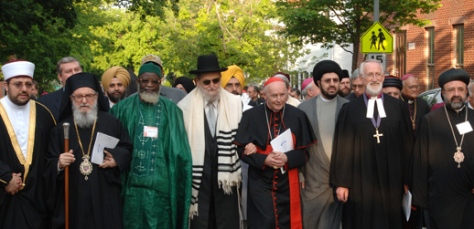 We non-Jewish disciples are living proof that God can be trusted beyond the covenant promises to Israel. Covenants are highly formal and specific agreements between two parties, but every word the comes from the mouth of the living God is trustworthy, carved in stone, immutable, unchangeable, and utterly reliable.
We non-Jewish disciples are living proof that God can be trusted beyond the covenant promises to Israel. Covenants are highly formal and specific agreements between two parties, but every word the comes from the mouth of the living God is trustworthy, carved in stone, immutable, unchangeable, and utterly reliable.
We may only come to God one-by-one as non-Jews outside of the covenants, but we are more than just individuals. We are part of something greater. We voluntarily come to Hashem, and we may voluntarily covenant with each other when we gather together, but we are more than just a group of individuals. We are members of the ekklesia and we make up a huge portion of the ekklesia alongside of Israel. We are different from the sum of our parts because the grace of God has made us children and family of the Most High.



